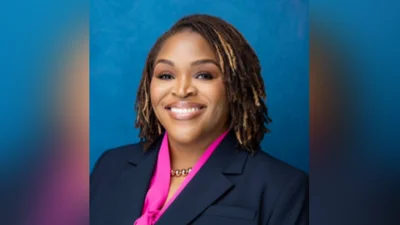Why did you decide to be a volunteer?
I was an undergraduate student at Virginia State University majoring in agriculture business and economics. During my tenure there, I was introduced to 4-H through my mentors who served several counties as 4-H agents. This led me to serve as a volunteer at 4-H camp. I loved it. The camping experience was interesting because I hadn’t done it when I was younger, but I can see a lot of the skills gained there. During camp, it was exciting to see youth who looked like me, and it was memorable to see their excitement.
What did you learn or gain from volunteering?
Through volunteering at 4-H camp, I was able to understand 4-H and understand it in a different setting. 4-H has different educational delivery models such as camping, classroom settings and hands-on learning. Camping was a component from which youth could really benefit. It gave 4-H’ers the opportunity to learn while being away from home and the chance to make new friends.
I gained leadership skills as a camp counselor. It was an opportunity to be a mentor and gave me a chance for me to build relationships with other adult mentors. I learned a lot as far as budgeting and keeping up with risk management, which is a big deal in camp. From all of the forms for health history and the code of conduct, there was a lot of hands-on learning. But most importantly, it put me in a position as a role model and mentor, and that was worthwhile.
Did you acquire or hone new skills as a volunteer?
I was fresh out of undergrad going into a graduate program. For my thesis, I was researching black farmer participation in outreach programs in Virginia. I was asking myself what I wanted to do long term. It was actually my 4-H volunteer experience that helped me figure out what I wanted to do after graduate school. I was briefly employed with USDA and then took a position as a 4-H Extension agent. That's when my career really kicked off. I took my volunteer experience to the agent-experience level. I wanted to do research while serving as an Extension agent, which led me to my obtaining my doctorate in agriculture and Extension education from Pennsylvania State University. I then became a 4-H Extension specialist, and now here I am as a national program leader with NIFA. The grassroots from starting as a volunteer was very, very helpful to me regarding my future.
How does volunteering offer opportunities to meet new people and expand your network?
As a youth participant, I think you're meeting adults in various fields who have lived different experiences. They can guide you and give you one-on-one mentorship. For example, practice public speaking by taking advantage of camping or any other 4-H experience. When I am leading a workshop, I always include a public speaking component because some youth may be quiet at first. Getting them out of their comfort zones and engaging them helps. As an adult volunteer, you never know what you can learn. When it comes to volunteering, nobody is perfect, so you can always hone your skills. It gives you an opportunity to understand what youth are thinking and their interests or their needs. As a volunteer, you serve as a change agent or mentor. That's really, really important to youth today.
Could you describe what it takes to be a good volunteer?
That's a tough question, but I think commitment is key. If you think of 4-H as a sandwich, volunteers are the bread. They serve as the bread to hold the sandwich together. You have agents and you have educators who need volunteers to make that program successful. The passion to want to work with youth and being that change agent really means a lot. As a volunteer, you're giving back, but you're also learning while doing.
Previous volunteer experience can help, but it's not critical. Great things can happen from seasoned or experienced volunteers having the chance to work with new volunteers and vice versa. Anybody can be a volunteer. We need volunteers with diverse backgrounds. The youth need adults with passion to come to the table to help them be contributing citizens in America.
Is there anything else you want to add?
I would challenge adults, university alumni, business leaders, community members and even college students to consider serving as a 4-H volunteer. The youth need volunteers, and the 4-H program needs volunteers. It is very rewarding.
Original source can be found here








